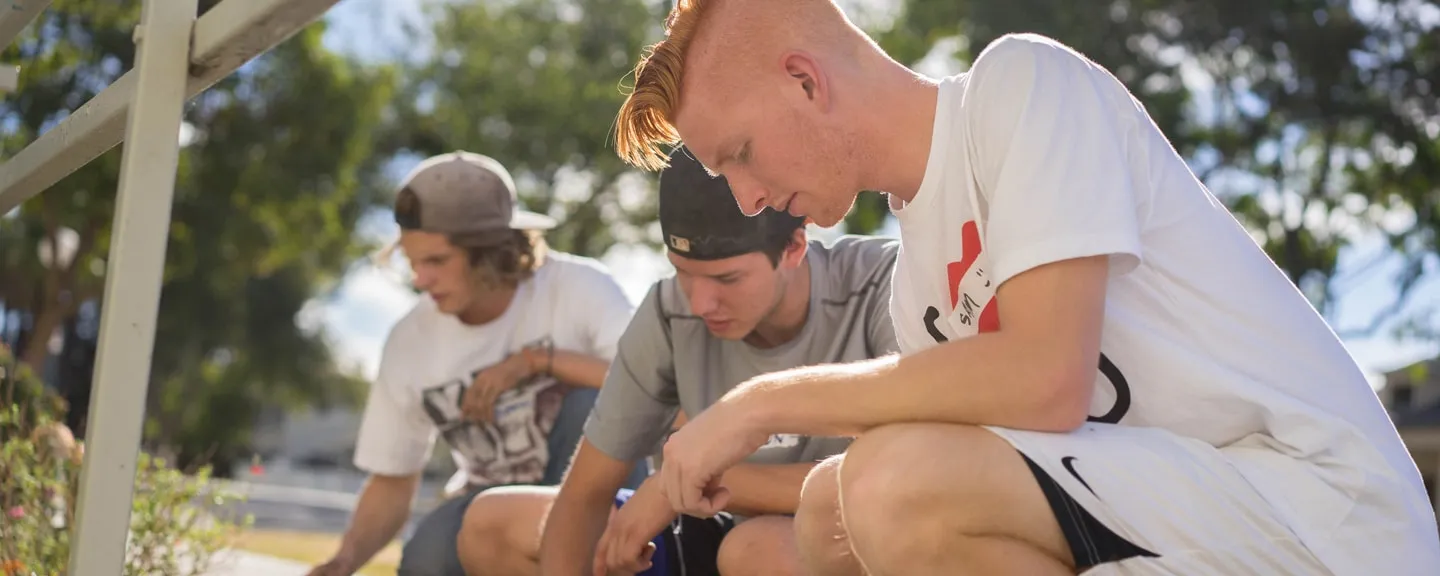- Home
- >
- APU Articles
- >
- News Article
How Can We Care for the Environment While on Campus?
April 22, 2019 | Written By John Montesi

Amid all of this activity, being environmentally conscious is an increasingly important conversation on campuses across the country, but many students may not know the best place to start. Here’s what you need to understand—and a few useful ideas to help you get started.
How Can We Care for the Environment?
Caring for the environment does not have to involve massive lifestyle changes like buying an electric car or charging your devices using solar energy. Small changes add up quickly! For instance, the Environmental Protection Agency reported that the average eight-minute shower uses eighteen gallons of water. While you can’t skip showering altogether, being smart about the length of your shower (or making other water-saving choices) can make a real difference.
During a recent Morning Chapel at Azusa Pacific University, climate scientist Katharine Hayhoe, Ph.D., explained how the use of Earth’s resources helps advance human civilization—but at a cost. Progress has helped build cities and industries, but led to issues with air, water, and soil pollution.
“The burden of extracting the resources that have given us the life that we are profoundly grateful for today ... that burden falls disproportionately on those who suffer the least benefits from that use,” Hayhoe said. She went on to note that most people would be amazed at how many modest changes can add up to make a tangible difference in others’ lives.
Small Changes Can Make a Big Impact
Toney Snyder, assistant director of environmental stewardship at APU, echoed Hayhoe’s sentiments about making an impact through small actions. He noted that there are several ways college students can care for creation by making small tweaks to their habits. Here are a few of his favorites:
- Close the window blinds when it’s too hot outside. Open them when you want the sun to warm your room. It’s free insulation and climate control!
- Make sure you set your devices to ‘sleep’ when they’re not in use, and adjust the brightness when possible. Computer and TV screens use the most energy of our common electronic devices.
- Turn off faucets in between use—no need to leave the water running while you’re brushing your teeth or shaving.
- Instead of using a car for short trips, consider riding a bicycle or walking.
- Learn about recyclables. Most people want to recycle, but end up throwing something in the recycling bin that causes the whole load to be thrown out or requires costly hand sorting. Knowing what you can (and can’t) recycle makes a big difference.
Try to Update One Daily Habit
Even if you’re mindful not to waste water or throw recyclables in the trash, chances are there are a few other things you and your friends could do to have a positive impact on the campus ecosystem. Simply helping others to see how their daily habits unintentionally create waste can make a huge difference. As Snyder pointed out, “The average American uses 680 pounds of paper each year.”
One of the best ways we can all care for the planet is by thinking about things before we do them. It is so easy to absentmindedly print something and then just toss it in a trash or recycling bin, but it’s even easier to make as many edits as possible before printing one, double-sided final draft—and spare a whole forest of trees over time. Whether it’s filling your plate with only what you’ll eat or turning the lights off as you leave your dorm, there are countless intentional actions that can truly make an impact on campus.
Continue to Make a Difference
Environmental stewardship happens in the choices you make every day. Once you’ve learned a few small changes that you can commit to, making a positive impact on the environment gets easier and easier. To assist with this, APU offers a number of resources that can help you minimize your environmental impact as a student (without requiring any additional effort).
“Our new bike sharing program encourages no emission transportation,” Snyder explained. “Our dining hall eliminated trays a few years ago. This saves water and reduces food consumption. We have also replaced nearly all lights on campus with LEDs that consume less energy.”
In addition, APU has an Environmental Stewardship office that can answer all of your questions about caring for the planet while in college. You can even review this list of links that the office provides to help you better understand where the campus’s resources come from—and what happens to its waste and recyclable materials. The next time one of your friends asks you, “How can we care for the environment while on campus?” you’ll have answers.
Curious to learn more about the campus community at Azusa Pacific University? Visit the school’s website and plan your visit today.